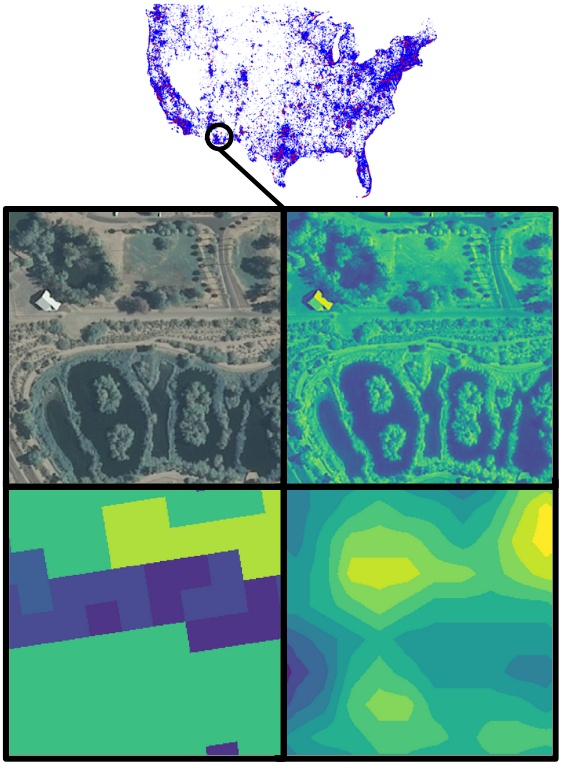The aim of the GeoLifeCLEF 2022 – LifeCLEF 2022 x FGVC 9 competition is to predict the localization of plant and animal species. Prediction of the species most likely to be observed at a given location is useful for many scenarios related to biodiversity management and conservation.
First, this would allow to improve species identification tools – automatic, semi-automatic, or based on traditional field guides – by reducing the list of candidate species observable at a given site. More generally, it could facilitate biodiversity inventories through the development of location-based recommendation services (e.g. on mobile phones), encourage the involvement of citizen scientist observers, and accelerate the annotation and validation of species observations to produce large, high-quality data sets.
Finally, this could be used for educational purposes through biodiversity discovery applications with features such as contextualized educational pathways.
The dataset provided for the competition consists of 1.6M geo-localized observations from France and the US of 17K(9K plant species and 8K animal species) species are provided which are paired with aerial images and environmental features around them.

The Competition
In this competition, your task will be to train a model to predict the species present at a particular position given their aerial images and environmental features. During testing, the model should be able to return a set of candidate species that should contain the true observed species given the GPS position, and its associated aerial images and environmental features.
Evaluation
The solution will be evaluated by the top-30 error rate metric.
Requirements
This competition is held jointly as part of:
- the LifeCLEF 2022 lab of the CLEF 2022 conference, and of
- the FGVC9 workshop organized in conjunction with CVPR 2022 conference.
Only participants who submit a working note paper to LifeCLEF will be part of the officially published ranking used for scientific communication.
Timelines
The competition began on 9th March 2022 and has the final submission deadline on 24th May 2022.
The registration deadline for LifeCLEF is 22nd May 2022. This registration will be free of charge.
Deadline for working note paper submission to LifeCLEF lab is 27th May 2022.
Prizes
There is no cash prize for this competition.
Since this competition is a part of the Fine-Grained Visual Categorization, FGVC 9 workshop at the Computer Vision and Pattern Recognition Conference CVPR 2022, a panel will review the top submissions for the competition based on the description of the methods provided. From this, a subset may be invited to present their results at the workshop. Attending the workshop is not required to participate in the competition; however, only teams that are attending the workshop will be considered to present their work.
To be a part of the GeoLifeCLEF 2022 – LifeCLEF 2022 x FGVC 9 competition, you just need to have a Kaggle Account. To know more about this challenge and participate in it, click here.
Good Luck!
Other Articles you might be Interested In
FGVC launches Computer Vision Challenge for Recognizing hotels to Combat Human Trafficking
Qiskit opens applications for Quantum Error Correction Summer School 2022
ConvNext: The ConvNet for the Roaring 20s
Getting Started with Quantum Computing? Check out these Resources!